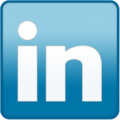A Key Barrier to Affordable Health Care for All
In most economic markets, supply and demand are the principle economic forces at play. This is a bit more complex in the U.S. health care market, where the economic forces driving health care are supply, demand, fear and greed.
Though we talk about the need to make health care more affordable, most of us flinch at hard reform proposals and scream at the idea of turning our health care over to government bureaucrats to manage. Why? Because we are concerned about how these changes may affect our personal access to health care. We do not want to be confused by the facts, either. Rather, we want all of what we believe we should have when we believe we need it.
For example, if the arteries feeding our heart are so clogged that bypass surgery is recommended, most patients would not care that a 10-year study published in The Lancet showed that a correlation between bypass surgery and survival five years post-operation was a most disappointing r = .08. Just bring on the surgery. Likewise, the fact that researchers reported in The New England Journal of Medicine that the treatment of breast cancer with chemotherapy generates a survival correlation of a mere r = .03 has not discouraged the use of this treatment regimen because doctors recommend it and consumers want it. Moreover, utilization studies involving Medicare beneficiaries reveal a positive correlation between increased utilization and -oops!- the hastened death of elderly patients.
[For the statistically challenged among us, the degree of treatment effectiveness can be measured by a number called the "correlation coefficient of determination," signified in statistical tests as "r." Correlations for treatment effectiveness can range from r = 0.00 (not effective for anyone) to r = 1.00 (perfect, meaning that everyone will benefit from the treatment).]
Many other less dramatic examples exist to show instances in which scientific fact is dismissed by our personal health care agendas, but the point is clear. Most of us agree that we need to reign in the rising cost of health care and make it available to all residents. We just don’t want any restrictions placed on what we can have when we think we need it, even if science does not support what we want.
While we are on the subject, how about those television ads urging us to ask our doctor about prescription drugs that we don’t know that we really might need?



